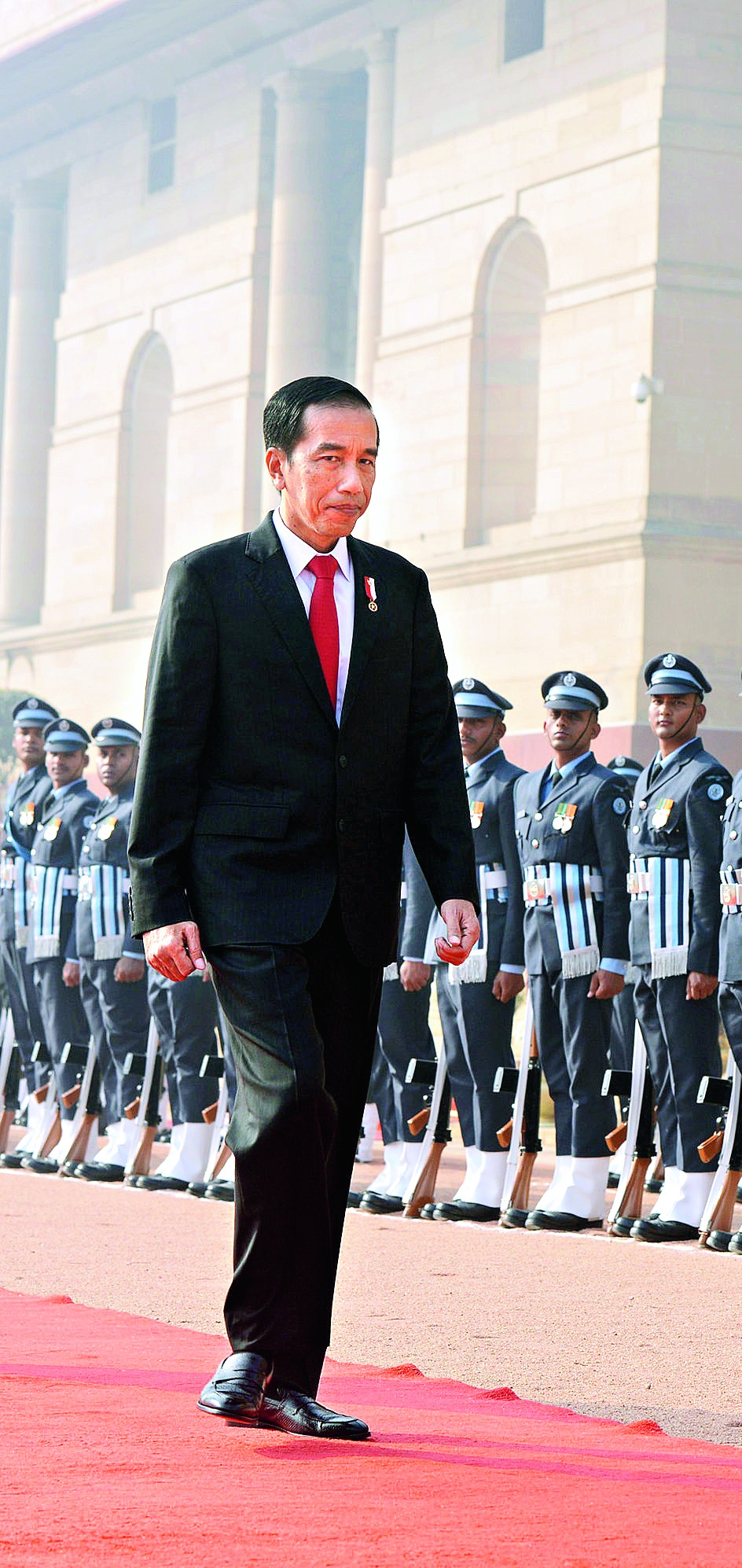
Dec. 12: Prime Minister Narendra Modi today thrust maritime cooperation to the forefront of India's relationship with Indonesia at a time when New Delhi is rushing to fortify its regional partnerships, uncertain about a Donald Trump-led America's Asia Pacific policies.
Modi and visiting Indonesian President Joko Widodo issued a rare "statement of maritime cooperation" separate from the joint statement leaders of the two countries released on key bilateral talks, signalling what officials told The Telegraph represents a subtle shift in priorities.
The maritime cooperation statement, coupled with a commitment made by both leaders to renew a defence cooperation pact between the countries that is to lapse this year, comes amid regional strategic changes that Modi referred to today.
India has for the past few years, and particularly since 2014, aligned its Asia Pacific strategy - the Act East policy - with the "pivot to Asia" of outgoing President Barack Obama, which China viewed as a bid to contain its growth.
New Delhi has in the past two years adopted a far more assertive approach with Beijing on some disputes than it had in previous years, secure in the unofficial coalition that included Washington, and also Tokyo and Canberra.
But Trump's campaign emphasis on withdrawing from some of America's international security commitments, and his unwillingness so far to clarify whether he will continue with Obama's "pivot to Asia", have worried India.
"We live in a geography that is at the centre of rapid political, economic and strategic changes currently underway in the world," Modi said in a statement after his meeting with Widodo in New Delhi today. "Your visit allows us to impart vigour and momentum to our strategic partnership. And, shape our convergences to act as a force of peace, prosperity and stability in the Indo-Pacific region."
Widodo's visit is among a series of trips by regional leaders who New Delhi is hosting in the coming weeks to try and shield itself as best as it can from the uncertainties of Trump's future priorities.
Vietnam's defence minister and parliament boss were here earlier this month, and the Presidents of Kyrgyzstan and Tajikistan are expected to visit later this month.
In January 2015, India and the US had unveiled an unprecedented "joint vision" for the Asia Pacific, articulating shared goals and cooperative management of the region, beset by tensions rooted in China's assertiveness with its neighbours.
China is locked in territorial disputes with six of its neighbours in the South China Sea and the East China Sea that carry over 70 per cent of India's maritime trade.
But the future of the joint vision with the US, under which the two countries upgraded their naval exercises and sharing of shipping information apart from enhancing maritime cooperation with Japan and Australia, is uncertain under a Trump presidency.
Today, Modi and Widodo asked their defence ministers to meet quickly to upgrade the expiring defence pact to make it more "substantive", according to their joint statement, a part of India's efforts to mitigate any fallout of shifts in the regional power balance.
India and Indonesia agreed today to also enhance the frequency of defence exchanges, joint training and military exercises. In their statement on maritime cooperation, the two countries sent a signal to China, committing "to maintaining a maritime legal order based on the principles of international law, as reflected notably in the UN Convention on the Law of the Sea (Unclos)".
China had earlier this year rejected an Unclos tribunal verdict against it, and favouring the Philippines in their maritime dispute.
India and Indonesia also emphasised "the importance of freedom of navigation and overflight on the high seas, unimpeded lawful commerce, as well as resolving maritime disputes by peaceful means" in the maritime cooperation statement.
Many East Asian and South East Asian countries have accused China of implicitly threatening the use of force to resolve their maritime disputes - though Beijing has denied these charges.










